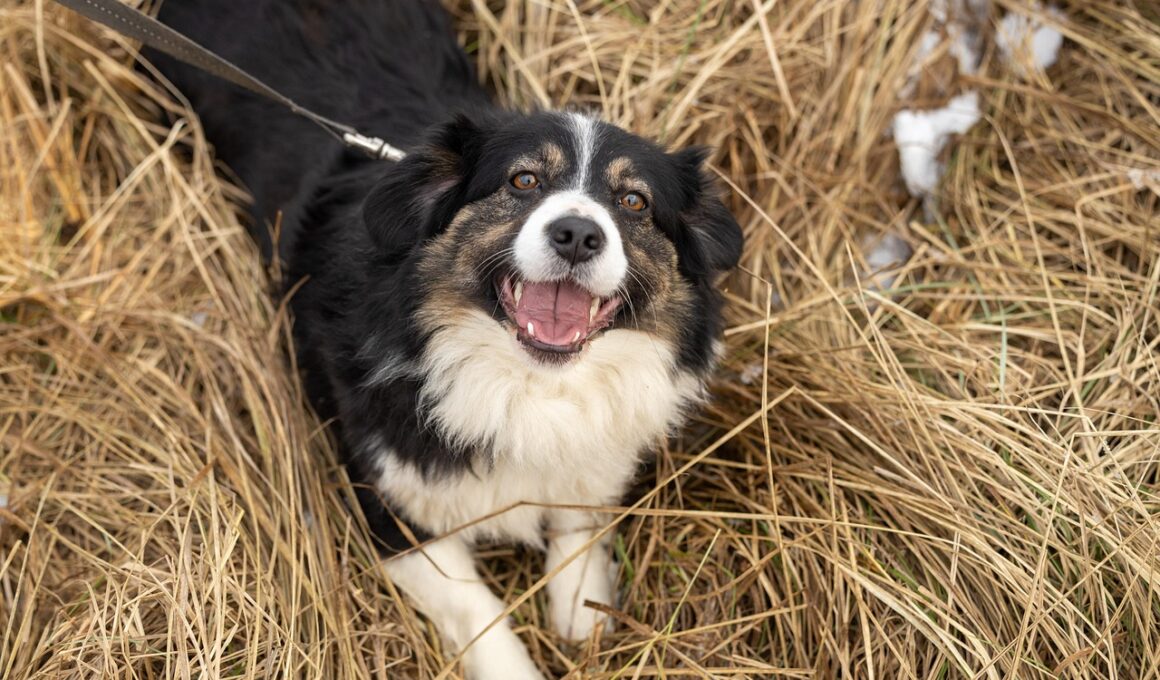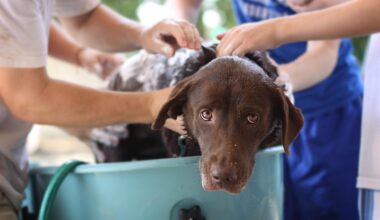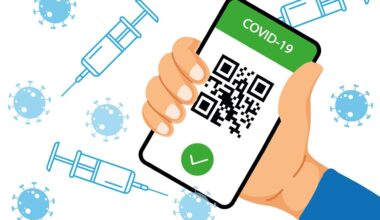Building Trust with a Rescue Dog Through Socialization
Bringing a rescue dog into your home can be a life-changing experience, yet it comes with challenges. One of the most crucial aspects of integrating a rescue dog into your life is proper socialization. Socialization involves exposing your dog to various environments, sounds, and situations. This helps establish trust between you and your furry companion. Introduce your dog gradually to new experiences and people, ensuring that they feel safe during these encounters. It’s normal for a rescue dog to have anxiety or fear stemming from past experiences. Through thoughtful and patient socialization, you can help your dog learn to navigate the world confidently. Start with controlled environments, gradually expanding to more stimulating situations. Use positive reinforcement techniques such as treats and praise to encourage your dog’s bravery. Focus on creating pleasant memories around new experiences, which will foster a sense of security. Remember, building trust takes time, and every dog’s timeline is unique, so remain patient and observant as your new friend begins to emerge from their shell. Commitment to socialization will lead to a harmonious and fulfilling relationship with your rescue dog.
Once you establish the importance of socialization, the next step involves creating opportunities for positive interactions. This can be achieved through various activities such as group classes, dog parks, or even playdates with well-socialized dogs. However, it’s essential to carefully select these playmates to ensure they are friendly, non-aggressive, and sympathetic to your rescue dog’s needs. Start with one or two dogs at a time to avoid overwhelming your new friend. Gradually increase the number of dogs as your rescue dog gains confidence. For dogs that exhibit extreme fear or aggression, consult a professional trainer for tailored advice. You can also practice controlled introductions to different environments, such as busy streets, public transport, or outdoor events. Each new scenario should be approached with patience and care, ensuring your rescue dog feels secure at every step. Reinforcing positive behavior during these experiences will lead to improved social skills. Additionally, monitoring your dog’s body language is vital to identify signs of fear or discomfort, allowing you to intervene and make adjustments as needed. This attention to detail fosters a sense of trust, leading to a more confident and social canine.
Using Positive Reinforcement Techniques
Positive reinforcement is a powerful tool in the training and socialization of rescue dogs. Instead of punishing unwanted behaviors, focus on rewarding desired behaviors to encourage your dog to repeat them. Rewards can include treats, toys, or affection, but make sure to tailor rewards to your dog’s preferences. When introducing your dog to new people, instruct guests to offer treats rather than petting initially. This creates a more favorable association with newcomers, making interactions less intimidating. Consistency is key in every training session. For example, while teaching your dog commands, ensure the same command is used each time. Use the same cues for socialization scenarios, reinforcing familiarity and comfort. Always celebrate small victories; for instance, if your rescue dog interacts positively with another dog, reward them immediately. This creates a positive feedback loop that helps build trust and reduces anxiety associated with new experiences. Over time, your dog’s confidence will grow, leading to better social interactions and overall behavior. Regular practice of these techniques will not only strengthen your bond but also enhance your dog’s ability to integrate into various social situations.
In addition to basic socialization, it’s crucial to expose your rescue dog to various stimuli, such as sounds, sights, and smells. This can be particularly beneficial for dogs that have experienced trauma or neglect, as they may be more sensitive to their environment. Start with less frightening sounds, such as soft music, gradually introducing more complex sounds like doorbells or sirens. Incorporate visual stimuli by showcasing everyday items like umbrellas or bicycles. Ensure that these exposures are done in a controlled manner, allowing your dog to investigate at their own pace. Providing plenty of positive reinforcement during these experiences will strengthen your dog’s ability to cope with their surroundings. Additionally, consider enrolling in training classes that focus on exposure to new environments. These classes can provide guidance and support while expanding your dog’s comfort zone. Never rush the process, as some dogs may take longer to acclimate than others. By developing resilience and adaptability, your rescue dog will be better equipped to handle unexpected scenarios. This comprehensive approach to sensory socialization will contribute significantly to building a trusting and lasting bond between you and your new family member.
Building a Routine
Establishing a daily routine helps your rescue dog feel secure and reduces anxiety. Dogs thrive on predictability and knowing what to expect. Start by designating specific times for feeding, walking, and playtime, creating a structured environment. Implementing a routine allows your dog to develop a sense of stability in their new home. Alongside physical needs, incorporate socialization into the daily agenda. For example, schedule regular trips to the dog park or visits to friends and family. Such deliberate activities should be viewed as enriching experiences rather than obligatory tasks. Gradually expose your dog to new situations during designated times, keeping these experiences stress-free. Incorporate variety into your schedule by exploring different walking routes or changing the time you visit familiar places. Make sure to follow through with positive reinforcement during these activities, celebrating every successful interaction that builds trust. With time, consistency, and positive interactions, your dog will begin to anticipate these experiences and build confidence. Also, feel encouraged to adapt the routine as your dog becomes more comfortable in their environment, ensuring that each day holds new opportunities for learning and bonding.
In addition to individual experiences, fostering independence in your rescue dog is an important aspect of their socialization process. Begin by allowing your dog some downtime in a safe space, such as a crate or designated area within your home. Encourage them to relax without constant interaction, which teaches them that being alone for short periods is acceptable. Emphasize the value of independence through interactive toys or puzzles that challenge their minds while keeping them occupied. As your dog becomes more comfortable with alone time, gradually extend those periods. This will help reduce anxiety and unwanted behaviors associated with separation. Consistent practice will build confidence and resilience, allowing your dog to cope better when social situations arise. Introduce controlled opportunities for practice, such as leaving them in a confined space for short trips outside. Always associate these moments with positive experiences, whether they receive a treat or a favorite toy upon your return. By encouraging independence, you allow your rescue dog to feel secure in their surroundings while also promoting healthy socialization skills. With patience and effort, you can nurture a well-adjusted companion who thrives in various social settings.
Recognizing Success and Adjusting Goals
As you navigate the socialization journey with your rescue dog, it’s essential to recognize progress and adjust your goals accordingly. Keep a journal of your dog’s experiences, noting their reactions and milestones during each socialization attempt. Celebrate small victories, whether that’s approaching a new person without fear or successfully playing with other dogs. Staying attuned to your dog’s emotional state will help you identify what works and what may need adjustment. Be prepared to revisit concepts repeatedly if your dog struggles with specific situations, allowing for flexibility in your approach. Tailor your socialization goals to align with your dog’s pace while being mindful of their comfort levels. If they consistently shy away from specific scenarios, consider taking a step back and trying again later. Continually striving for balance between pushing boundaries and respecting your dog’s limits will create a safe space for learning. Regularly reassess and celebrate achievements, no matter how small, as they ultimately contribute to the development of trust and a strong bond. The journey of socialization will not only shape your dog’s behavior but enrich your relationship for years to come.
The process of socializing a rescue dog is indeed an ongoing commitment that requires patience, love, and effort from both you and your dog. It’s not merely a checklist of tasks to complete but a nurturing journey toward mutual understanding. Each dog has unique backgrounds, and their experiences shape how they respond to new situations. Therefore, it’s crucial to remain adaptable, as what works today may differ in the future. Cultivating a positive relationship involves engaging in playful interactions, training sessions, and fostering communication. With time, you will witness profound changes in your dog’s behavior, transforming them into a more confident and sociable companion. Embrace each encounter as an opportunity to fortify the bond you share. Learn to appreciate the joy in every small step your rescue dog takes toward becoming more comfortable in their world. Moreover, don’t hesitate to seek assistance from local animal shelters, trainers, or therapists specializing in canine behavior for valuable insights. By ensuring your rescue dog receives the support they need, you set them on a path toward thriving in any environment. In the end, the journey of socialization is a rewarding process that benefits both you and your beloved rescue dog.


